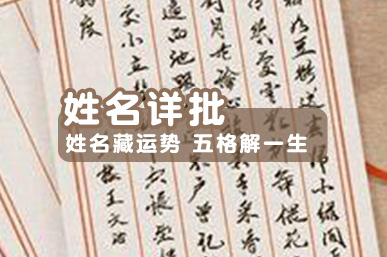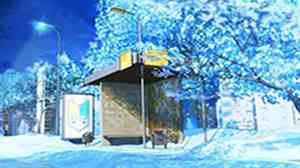寓意深刻又少见的英文单词(寓意深刻又少见的英文单词加图片)

与环境有关的英语单词
与环境有关的英语单词
重要的环境问题,自然环境灾害和其他环境词汇.
acid rain(酸雨)
rain which contains large amounts of harmful chemicals as a result of burning substances such as coal and oil.
Biodegradable(生物降解)
able to decay naturally and harmlessly.
Biodegradable packaging helps to limit the amount of harmful chemicals released into the atmosphere.
Biodiversity (生物多样性)
the number and variety of plant and animal species that exist in a particular environmental area or in the world generally, or the problem of preserving and protecting this.
a new National Biological Survey to protect species habitat and biodiversity.
carbon monoxide (一氧化碳)
the poisonous gas formed by the burning of carbon, especially in the form of car fuel.
carbon dioxide (二氧化碳)
the gas formed when carbon is burned, or when people or animals breathe out.
Climate (气候)
the general weather conditions usually found in a particular place.
The Mediterranean climate is good for growing citrus fruits and grapes.
climate change (气候变化)
there has been a growing concern about climate change.
Deforestation (乱伐树木)
the cutting down of trees in a large area; the destruction of forests by people.
Deforestation is destroying large areas of tropical rain forest.
Desertification (沙漠化)
the process by which land changes into desert.
disposable products (一次性产品)
describes an item that is intended to be thrown away after use.
disposable nappies
drought (干旱)
a long period when there is little or no rain.
This year (a) severe drought has ruined the crops.
Earthquake (地震)
a sudden violent movement of the Earth's surface, sometimes causing great damage.
endangered species (濒危物种)
endangered birds/plants/species animals or plants which may soon not exist because there are very few now alive.
Energy (能源)
the power from something such as electricity or oil, which can do work, such as providing light and heat. There are different types of energy: solar, nuclear, hydroelectric...
The energy generated by the windmill drives all the drainage pumps.
energy conservation (节能)
the process of conserving energy
environment (环境)
the air, water and land in or on which people, animals and plants live.
Certain chemicals have been banned because of their damaging effect on the environment.
Extinction (灭绝)
Many species of plants and animals are in danger of/threatened with extinction (= being destroyed so that they no longer exist)
Flood (洪水)
a large amount of water covering an area that is usually dry.
Fumes (烟雾)
strong, unpleasant and sometimes dangerous gas or smoke.
Petrol fumes always make me feel ill.
natural resources (自然资源)
things such as minerals, forests, coal, etc. which exist in a place and can be used by people.
Some natural resources, such as natural gas and fossil fuel, cannot be replaced.
global warming (全球暖化)
a gradual increase in world temperatures caused by polluting gases such as carbon dioxide which are collecting in the air around the Earth and preventing heat escaping into space.
greenhouse effect (温室效应)
an increase in the amount of carbon dioxide and other gases in the atmosphere which is believed to be the cause of a gradual warming of the surface of the Earth.
green peace (绿色和平)
an organization that fights for the protection of the environment.
renewable energy (再生能源)
describes a form of energy that can be produced as quickly as it is used.
renewable energy sources such as wind and wave power
oil slick (水面浮油)
a layer of oil that is floating over a large area of the surface of the sea, usually because an accident has caused it to escape from a ship or container.
ozone layer (臭氧层)
a layer of air high above the Earth, which contains a lot of ozone, and which prevents harmful ultraviolet light from the sun from reaching the Earth.
Scientists believe that there is a hole in the ozone layer.
Pollution (污染)
damage caused to water, air.... by harmful substances or waste.
recycle waste (废物回收)
to collect and treat rubbish to produce useful materials which can be used again.
sustainable development (可持续发展)
a development that is causing little or no damage to the environment and therefore able to continue for a long time.
A large international meeting was held with the aim of promoting sustainable development in all countries.
Tsunami (海啸)
an extremely large wave caused by movement of the earth under the sea, often caused by an earthquake (= when the Earth shakes)
unleaded petrol (无铅汽油)
describes a type of petrol or other substance that does not contain lead.
use up natural resources (耗尽自然资源)
The degradation of natural resources because of human pressure
Volcano (火山)
a mountain with a large circular hole at the top through which lava (= hot liquid rock), gases, steam and dust are or have been forced out.
Erupting volcanoes discharge massive quantities of dust into the stratosphere.
Waste (废物)
unwanted matter or material of any type, often that which is left after useful substances or parts have been removed.
Other related vocabulary: rubbish, garbage, trash.
免责声明:本文内容由互联网用户自发贡献,该文观点仅代表作者本人。本站仅提供信息存储空间服务,不拥有所有权,不承担相关法律责任。如发现本站有涉嫌抄袭侵权/违法违规的内容,请发送邮件举报,一经查实,本站将立刻删除。




























